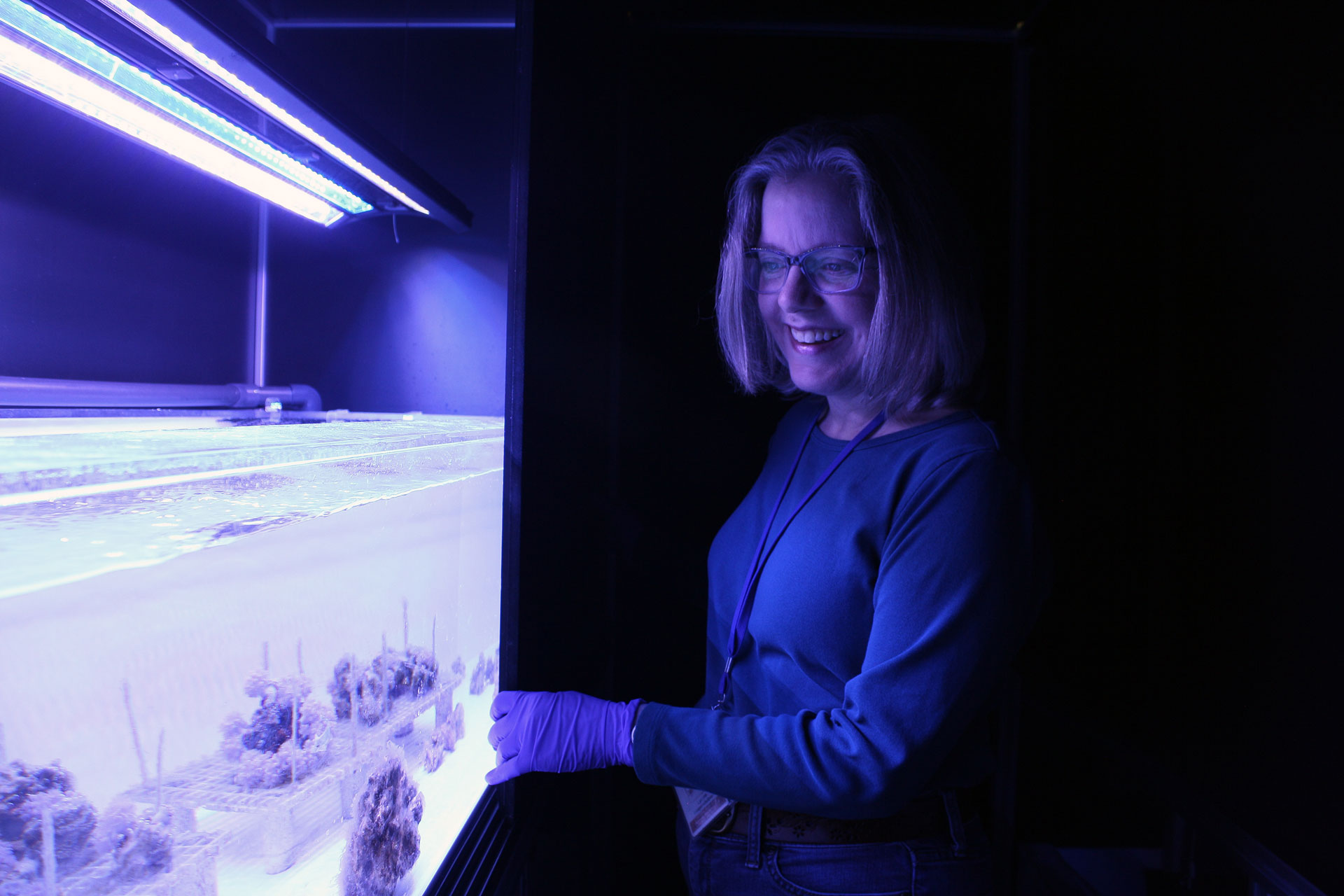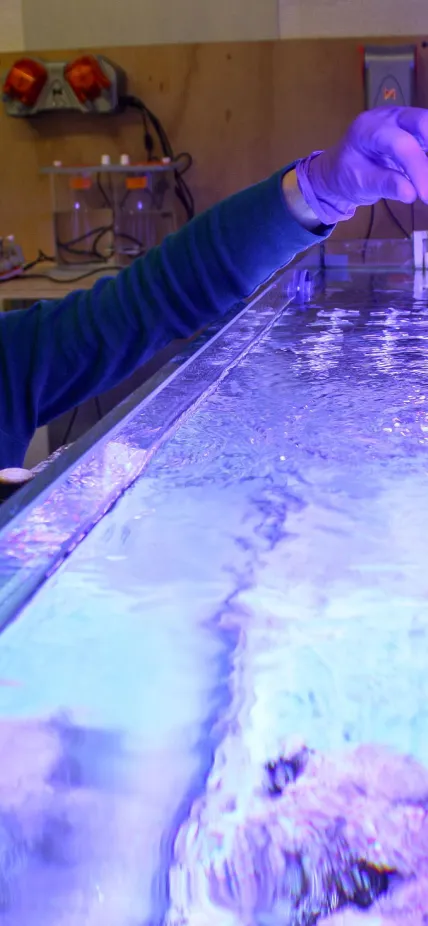Lynne Hugendubler, a Lab Technician on the Baltimore campus of Carnegie Science’s Biosphere Sciences and Engineering division, plays a vital role in maintaining a diverse array of aquatic organisms, including innovative new model species like the Xenia genus of soft coral, and their tank ecosystems in Staff Scientist Yixian Zheng's lab. Recently honored with the prestigious Service to Science Award, Hugendubler provides essential support for coral, hydra, frogs, and fish. In addition to ensuring the lab environment is safe and that all equipment is in good working order, her responsibilities include daily feeding, water quality monitoring, and maintaining complex systems to support the health of the organisms. In this Q&A, we explore her behind-the-scenes work, which is crucial to advancing the lab’s scientific mission, as well as the influences that have shaped her career and her passions outside of work.
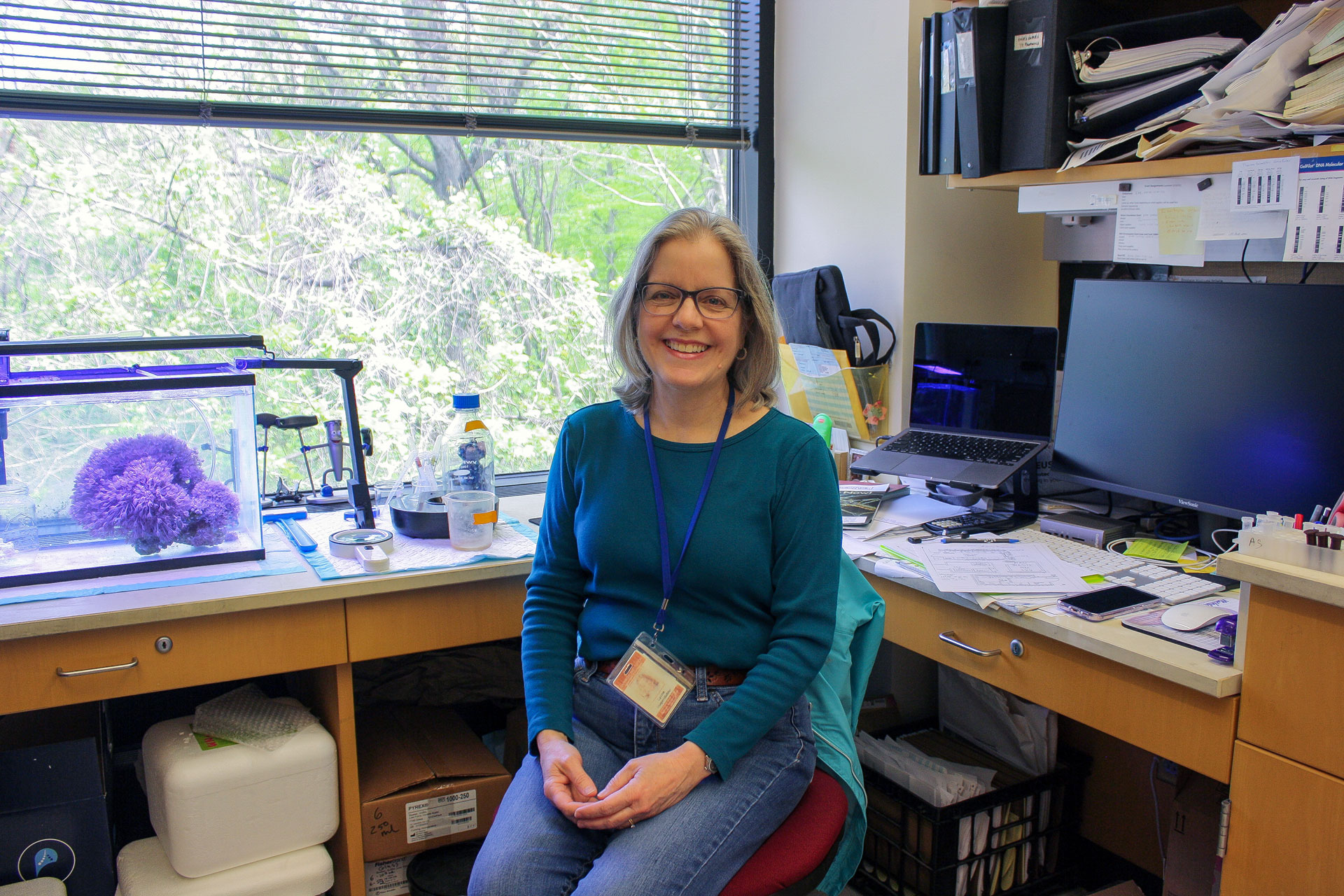
Q: What initially drew you to the field of biology, and what has been your path to becoming a lab technician?
Lynne Hugendubler: I have always been intrigued by how things work, the physiological pathways that support life. I majored in Biology in college and then started graduate school as a Ph.D. student at Penn State College of Medicine in Hershey. Graduate school was not a good fit, and when I decided to leave the program, one of the labs I rotated in was losing one of their techs, and the P.I. asked if I was interested in joining the lab. Being a tech was a much better fit, and I already knew the lab members, so I agreed.
Initially the plan was only to stay a few years, but the position was satisfying, and I stayed with that lab for at least 15 years until my husband’s job moved us to the Baltimore area. I then worked as a Kelly Services contractor at NIH in Bethesda for six years until the contract couldn’t be renewed. Former Carnegie Staff Scientist Nick Ingolia needed a tech and I joined his lab shortly after leaving NIH. When his lab moved to California, I was lucky that Staff Scientist Yixian Zheng had a spot and was able to take me in.
Q: Reflecting on your first day at Carnegie Science, what was it like, and how does it compare to your role now?
Lynne Hugendubler: The Carnegie community was so welcoming, I felt at home immediately. In the beginning, my time was divided between helping with experiments and with lab support. Now I take care of the various model organisms, provide lab support and departmental support.
Q: What are some of the biggest challenges you face in your daily work?
Lynne Hugendubler: Setting up our new coral systems has been quite challenging. You’re trying to mimic the diverse ecosystem of the ocean in a small enclosed system and keep it stable and balanced. Our older tank uses water changes to export nutrient buildup and replenish elements that the coral used out of the salt water. The new tanks are using the Triton method which uses macroalgae grown in the sump to remove excess nutrients, and solutions containing elements are dosed back in. The macroalgae didn’t live very long, and we have struggled with nuisance algae, so the tanks are still out of balance. The pieces of equipment that measure alkalinity and dose the element solutions randomly go offline, but most of the time, they do reconnect to the wifi on their own.
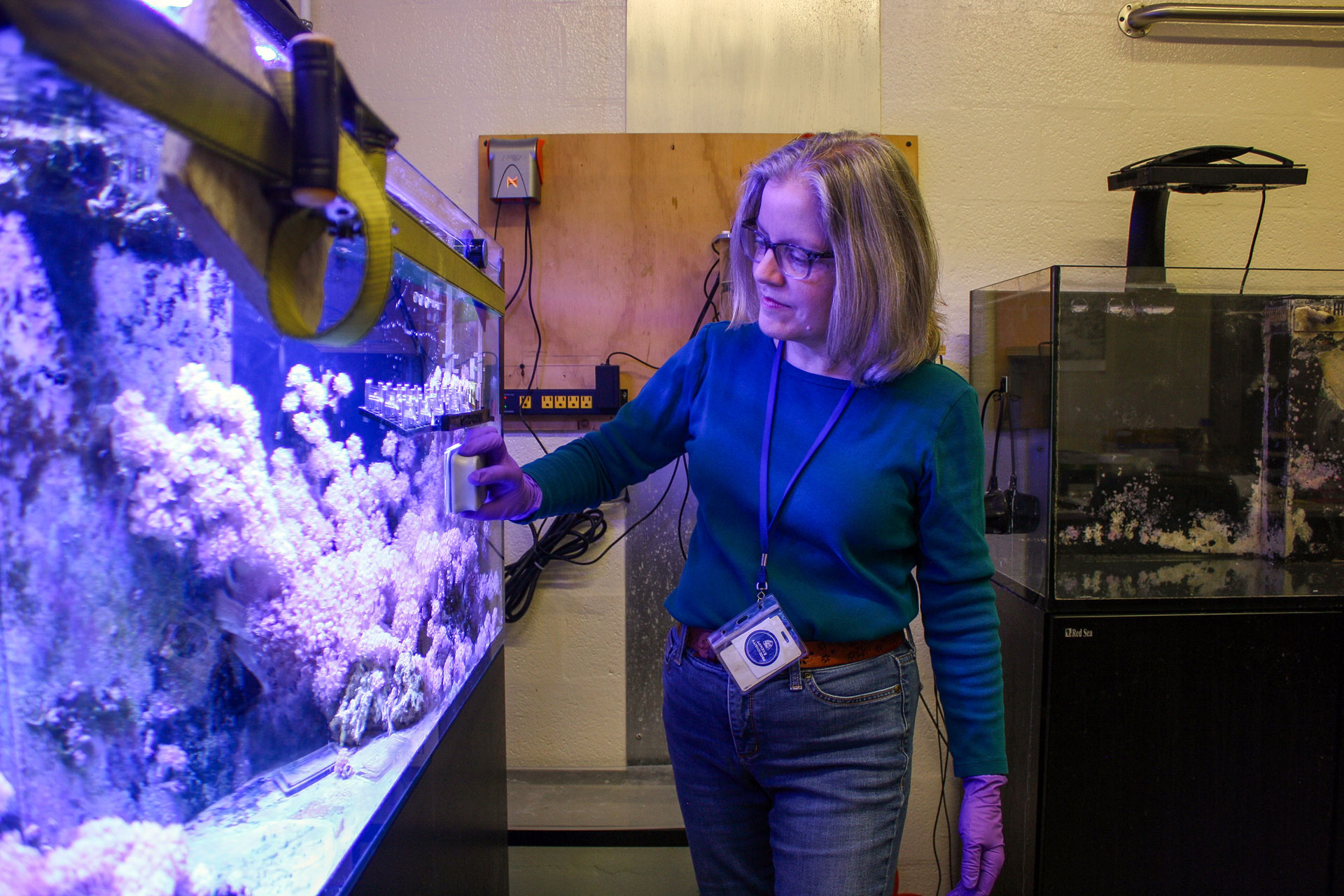
Q: Can you share a particularly memorable moment or breakthrough?
Lynne Hugendubler: During my first year here, legendary biologist Joe Gall taught a history of microscopy class that was available for anyone to attend. He has an amazing collection of antique microscopes and antique books, and he brought something interesting to show every week.
Q: What is your favorite or most intriguing model organism that you’ve worked with over the years?
Lynne Hugendubler: My favorite is the coral. They are a big change from my early career and their pulsing and swaying is mesmerizing.
Q: How did you feel when you learned you had won the Service to Science award?
Lynne Hugendubler: I am so grateful and honored to be a recipient of the award. I knew I had been nominated but was surprised to win; there are so many others who also provide invaluable service.
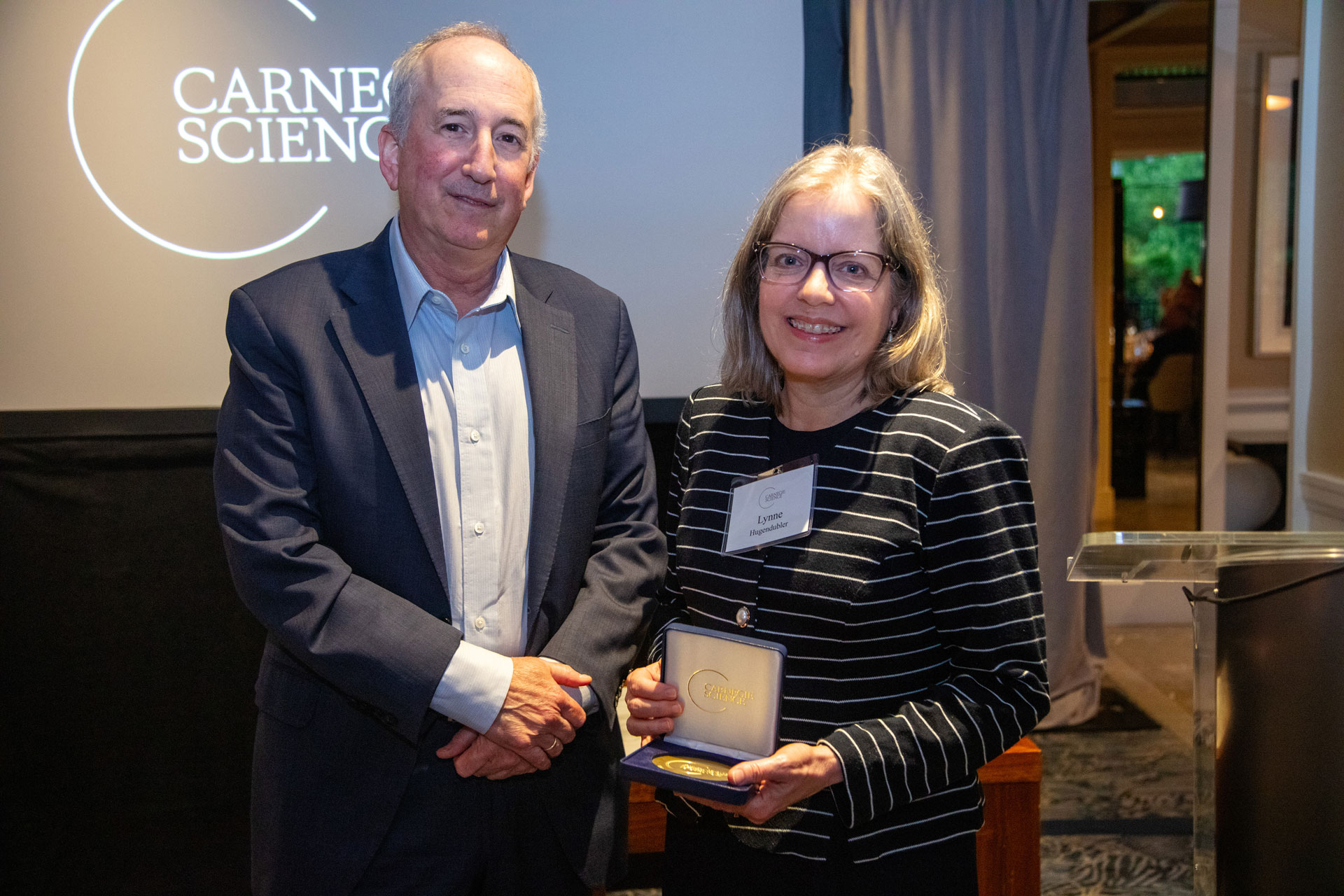
Q: How do you envision the future of biological research? Are there specific frontiers or challenges you’re excited to see tackled? Are there any emerging trends that you find particularly exciting?
Lynne Hugendubler: Coral bleaching is becoming more drastic as the ocean warms. I hope researchers are able to identify ways to help them adapt to changing conditions.
On the medical front, I would be excited to see improvement in dementia treatment. It is devastating to watch helplessly as a loved one loses themselves.
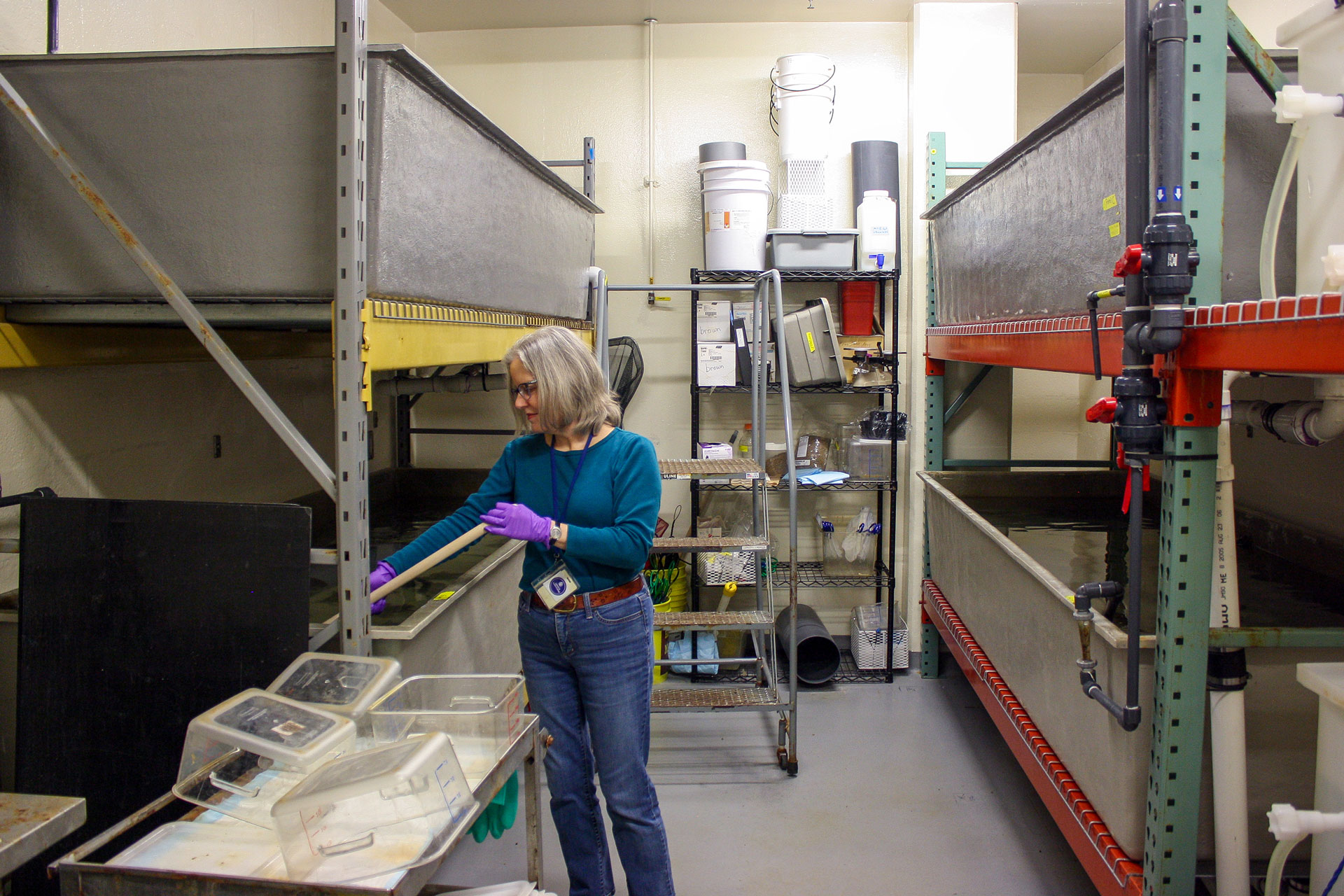
Q: What advice would you give someone starting their lab technician career?
Lynne Hugendubler: My advice to a new tech is to take pride in your work, be kind, be patient when learning new techniques; it can take time to become proficient in new things, and be flexible. The projects the lab focuses on, the skills needed to contribute to them change over time.
Q: Have you had any mentors or influential figures in your career? How have they shaped your approach to your work?
Lynne Hugendubler: The head technician at my first job was very precise and methodical. She was patient when teaching others how to do things and very thoughtful towards fellow lab members, always ready to pitch in and help.
Q: What is your favorite part of your job?
Lynne Hugendubler: My favorite part of the job is the people. The atmosphere at Carnegie is so kind and generous. So many people are willing to share reagents, knowledge, or time to help each other out, and there is a high level of camaraderie. Being around the scientists and providing support for them has been fulfilling.
Q: Outside of work, what are some of your hobbies or passions?
Lynne Hugendubler: I like going for walks around my neighborhood. It is nestled along the Magothy River and has a community beach area. The flowering trees and shrubs this time of year and singing birds make the walk quite enjoyable. The stretch of river in our area is a no wake zone, so it is nice for kayaking. There are creeks near the beach that are fun to kayak as well.
Another interest is starting plants from seed and gardening. It always amazes me that a small tomato seed can grow into such a big, productive plant. I grow snap peas, cucumbers, beans, and flowers. Some years are better than others; squirrels and voles enjoy the garden as much as I do, and so do insects. There are a lot of tall trees, so finding enough sunlight is also a challenge. Freshly picked veggies are so good though.
